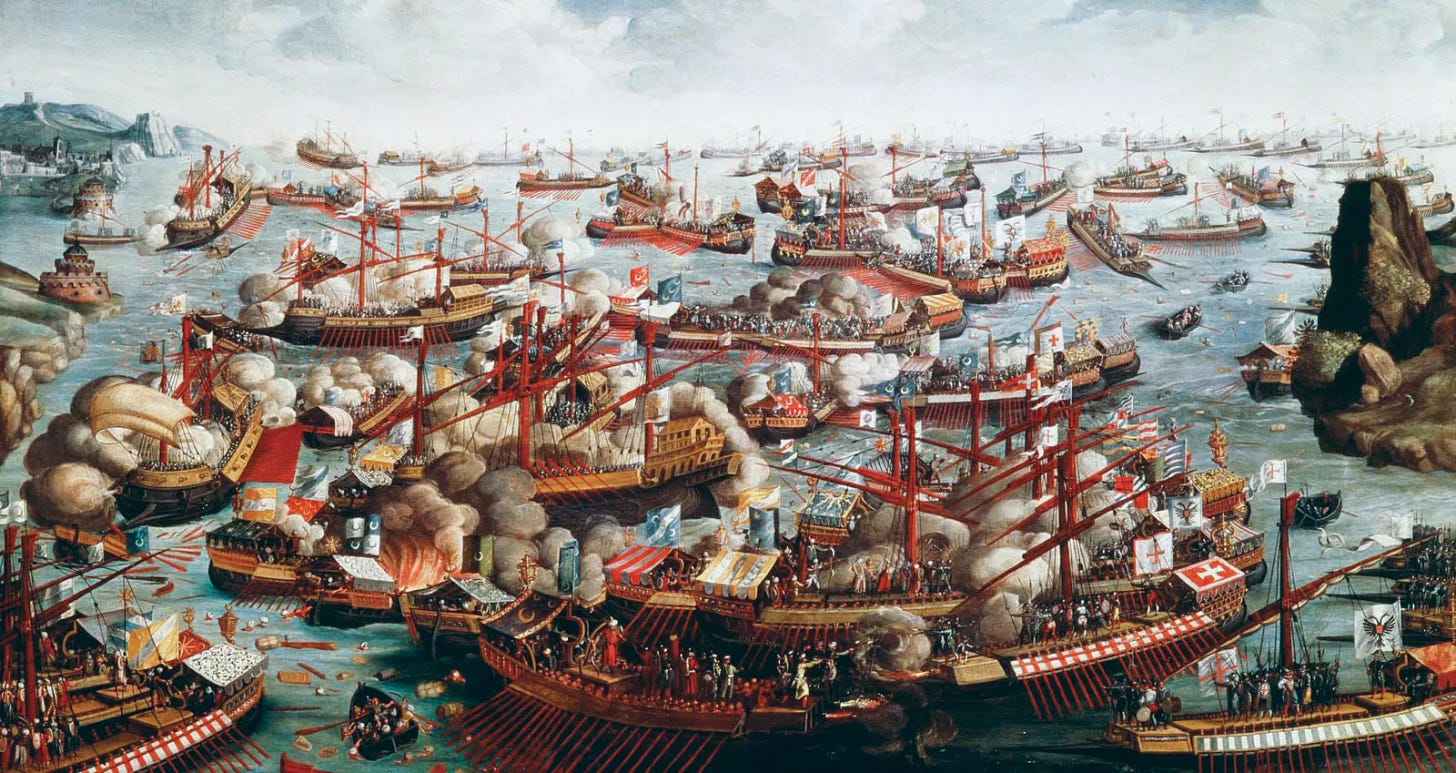It’s a great day for the novel. In the Catholic Church, today is the feast of Our Lady of the Rosary, which commemorates the victory of the Holy League in the Battle of Lepanto in 1571. Just a year before that decisive conflict, a young writer named Miguel de Cervantes had enlisted in the Spanish Navy. At Lepanto, Cervantes was shot in the chest and arm, resulting in wounds so serious that for the rest of his life he was unable to use his left hand. It’s a fitting day, then, to remember Cervantes and the art form of which he is generally considered the founder.

To that end, please check out The Line of Beauty, a joint project of
and , and its “Symposium on the Novel,” to which I am honored to be the latest contributor. My essay, “On Unaffected Pleasure,” takes as its jumping off point Jane Austen’s defense of the novel in chapter five of Northanger Abbey. There Austen praises the still-nascent form for the “extensive and unaffected pleasure” it has given countless readers, and marvels that so many naysayers insist on “undervaluing” it. I’ve long been struck not just by the powerful arguments and blazing wit of Austen’s defense, but also by the vivacity of her confidence in the value of storytelling and novel-reading. In the essay, I touch on Balzac’s Lost Illusions, W.H. Auden’s “Letter to Lord Byron,” and some revealing remarks from Jonathan Franzen to suggest that Austen’s faith in fiction as sheer storytelling delight was gradually replaced by a loftier account of its importance, and then increasingly by doubts about whether anything so lightweight as a love story could matter unless a social critique or ideological angle was somehow involved.To bolster my arguments, I bring in the heavy artillery:
’s Daniel McInerny and his Beauty & Imitation: A Philosophical Reflection on the Arts, which I have much pondered of late (my review of it will appear in the literary journal Dappled Things), and ’s apt and important distinction between the beautiful books we want to read and the moralistic ones we want to be seen reading. Please do check out the essay and unleash the full force of your comments, criticisms, and reflections.Another reason to celebrate today as a great day for the novel is the release of my friend Joshua Hren’s new novel, Blue Walls Falling Down, out from Angelico Press. Here’s what
had to say about Joshua’s novel:has published an excerpt, and Joshua will team up with poet and novelist Sally Thomas, author of The Blackbird & Other Stories (Wiseblood Books, 2024), for a book launch event this Thursday hosted by ’s Micah Mattix.Joshua Hren has crafted a novel that is as spiritually challenging as it is beautifully written. Blue Walls Falling Down delves into the complexities of human existence, offering a poignant meditation on the search for meaning in a world often overshadowed by loss and uncertainty. This is a novel that will linger in the hearts and minds of readers long after the final page.
Finally, for those intrigued by the idea of a Jane Austen edgier and more death-haunted than the one we’ve been accustomed to by lavish period adaptations of her novels, I commend Julia Yost’s recently published Jane Austen’s Darkness, a much-expanded version of an essay originally published in
.Happy Feast Day!



PS, ready for this? My dad was Julia Yost’s undergraduate thesis advisor at Penn Stare (one of his best students ever)
This was wonderful: thanks. Great to see you at the Blackbird/Blue Walls launch last night!